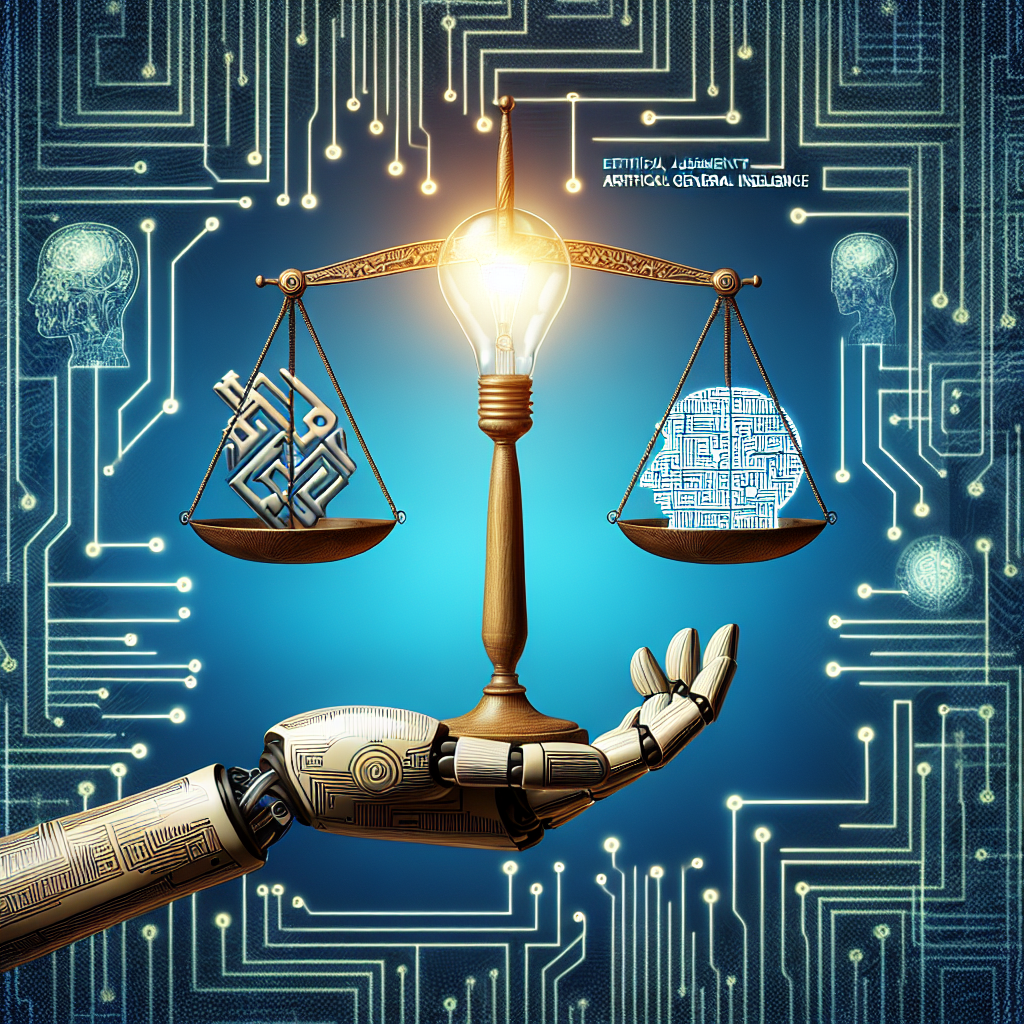The Ethics of Artificial General Intelligence: Challenges and Solutions
Introduction
Artificial General Intelligence (AGI) refers to the development of intelligent machines that are capable of performing any intellectual task that a human being can. While current artificial intelligence (AI) systems are designed for specific tasks, such as speech recognition or image classification, AGI aims to create machines that can think, learn, and reason like humans. The development of AGI raises numerous ethical concerns, as these machines have the potential to impact society in profound ways. In this article, we will discuss the ethical challenges associated with AGI and explore potential solutions to address these issues.
Ethical Challenges of AGI
1. Autonomy and Control
One of the primary ethical concerns surrounding AGI is the issue of autonomy and control. As these machines become more advanced and capable of making decisions on their own, there is a risk that they may act in ways that are harmful to humans. For example, if a self-driving car is programmed to prioritize the safety of its passengers over pedestrians, it could potentially put others at risk. Ensuring that AGI systems are designed with ethical principles in mind and have mechanisms in place for human oversight is crucial to prevent such scenarios.
2. Bias and Discrimination
Another ethical challenge of AGI is the potential for bias and discrimination in decision-making. AI systems are often trained on large datasets that may contain biases, leading to unfair outcomes for certain groups of people. For example, a hiring algorithm that is trained on historical data may inadvertently discriminate against minority candidates. Addressing these biases and ensuring that AGI systems are fair and equitable is essential to prevent harm and promote social justice.
3. Privacy and Security
AGI systems have the ability to collect and analyze vast amounts of data, raising concerns about privacy and security. If this data is not properly protected, it could be misused or exploited for nefarious purposes. Ensuring that AGI systems are designed with robust security measures in place and that data privacy laws are strictly enforced is essential to protect individuals’ rights and prevent abuse.
4. Accountability and Transparency
One of the key ethical principles of AI is the idea of accountability and transparency. It is crucial that AGI systems are designed in such a way that their decision-making processes are understandable and traceable. This transparency is essential to ensure that individuals can hold AI systems accountable for their actions and that errors or biases can be identified and corrected.
Solutions to Ethical Challenges
1. Ethical Design Principles
One way to address the ethical challenges of AGI is to incorporate ethical design principles into the development process. This includes ensuring that AGI systems are designed with human values and rights in mind, such as fairness, transparency, and accountability. By embedding ethical considerations into the design phase, developers can create systems that are more likely to behave ethically and responsibly.
2. Ethical Oversight and Regulation
Another solution to the ethical challenges of AGI is to establish ethical oversight and regulation mechanisms. This could involve the creation of independent bodies or regulatory agencies that are responsible for monitoring and evaluating the ethical implications of AGI systems. By setting clear guidelines and standards for ethical AI development, governments can help ensure that AGI technologies are used in a responsible and ethical manner.
3. Ethical Training and Education
In addition to ethical design principles and oversight mechanisms, it is essential to provide training and education on AI ethics to developers, policymakers, and the general public. By raising awareness about the ethical challenges of AGI and promoting ethical decision-making practices, we can help ensure that AI technologies are used in ways that benefit society as a whole.
Frequently Asked Questions
Q: Will AGI replace human workers?
A: While AGI has the potential to automate many tasks currently performed by humans, it is unlikely to completely replace human workers. Instead, AGI is more likely to augment human capabilities and create new opportunities for collaboration between humans and machines.
Q: How can we ensure that AGI systems are ethical?
A: Ensuring that AGI systems are ethical requires a multi-faceted approach that includes ethical design principles, oversight mechanisms, and education. By embedding ethical considerations into the development process and establishing clear guidelines for ethical AI deployment, we can help mitigate potential harms and promote responsible use of AGI technologies.
Q: What are the risks of AGI?
A: The risks of AGI include potential harm to individuals, society, and the environment. These risks can manifest in various ways, such as bias and discrimination, privacy violations, and loss of human control. By addressing these risks through ethical design and oversight, we can help ensure that AGI technologies are used in ways that are safe and beneficial.
Conclusion
The development of Artificial General Intelligence has the potential to revolutionize society in profound ways. However, this technology also raises numerous ethical challenges that must be addressed to ensure that AGI systems are used in a responsible and ethical manner. By incorporating ethical design principles, establishing oversight mechanisms, and promoting education on AI ethics, we can help mitigate the risks associated with AGI and promote the ethical use of this transformative technology.

